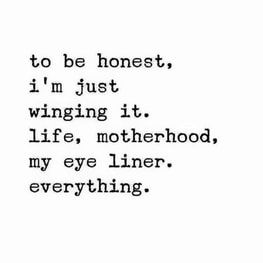Accepting birth clients for 2024. Inquire today!
 Hey there, fellow doulas! Today, let's delve into a topic that might raise a few eyebrows but has the potential to revolutionize your practice and the postpartum journey for your clients: placenta encapsulation services. As doulas, our primary goal is to provide unwavering support to mothers before, during, and after childbirth. We're there to offer comfort, guidance, and advocacy every step of the way. But what if I told you there's an additional tool in our toolkit that could elevate our support to new heights? Enter placenta encapsulation. Now, I know what you might be thinking: "Placenta encapsulation? Really?" Bear with me. While the idea of consuming one's placenta may seem unconventional at first, the benefits are truly remarkable, both scientifically and anecdotally. First and foremost, placenta encapsulation is believed to aid in postpartum recovery. The placenta is rich in essential nutrients, hormones, and iron, all of which can be depleted during childbirth. By encapsulating the placenta into easy-to-swallow pills, we're essentially providing mothers with a natural supplement tailored specifically to their needs during this critical time. It's like a personalized wellness boost designed to combat fatigue, regulate hormones, and support lactation. But it's not just about the physical benefits. Placenta encapsulation can also have a positive impact on mental health. Many mothers report feeling more balanced, energized, and emotionally stable after incorporating placenta pills into their postpartum routine. In a world where maternal mental health is increasingly recognized as a priority, this is a game-changer. So, why should doulas consider adding placenta encapsulation services to their practice? Well, for starters, it's about offering holistic support that addresses both the physical and emotional needs of our clients. By embracing placenta encapsulation, we're providing an additional layer of care that goes above and beyond traditional doula services. Furthermore, offering placenta encapsulation can set you apart in a competitive market. As more and more mothers seek alternative therapies and natural remedies, having this option available can make your doula practice stand out from the crowd. Plus, it opens up new opportunities for collaboration with other birth professionals, such as midwives and holistic health practitioners. Of course, it's essential to approach placenta encapsulation with professionalism, sensitivity, and a commitment to safety. As doulas, we must educate ourselves on the best practices, guidelines, and regulations surrounding this service. By doing so, we can ensure that our clients receive the highest standard of care and support throughout the encapsulation process. In conclusion, incorporating placenta encapsulation into your doula practice isn't just about jumping on a trend—it's about embracing a powerful tool for supporting maternal health and well-being. By offering this service, you're not only enhancing the postpartum experience for your clients but also strengthening your role as a trusted ally in their journey to motherhood. So, what do you say, fellow doulas? Are you ready to explore the world of placenta encapsulation and take your practice to the next level? Let's empower mothers, one placenta pill at a time! Join our Placenta Encapsulation Training.
0 Comments
"We have no idea what we are doing..." The moment a woman is pregnant, I SO wish she received a special download into her brain of all the things she needs to know going forward from this moment on. Wouldn't that bring such peace and understanding to the situation? Me, oh my!! My Backstory: In 2010, I was a newly pregnant single woman on the verge of chaos, not knowing what my future would hold. Fear flowed through my entire body for days as I scrambled to read, research, and refine this new state of existence. So much to think about, so much to do!!! Today: As a woman on the other side of pregnancy and birth, I am deep in the trenches of motherhood. I must be vulnerable with you and admit that on some days, I feel like "my self" has returned! And I can confidently conquer any animal cracker that gets thrown my way. I am Wonder Woman!! -> But on other days, motherhood can be dreary, dreadful and downright powerless... when all I can do is lay on the couch with my kids and let them watch whatever they want for a few hours until nap and/or bedtime. This mommy'ing thing is TOUGH ladies! Encouragement: I'm here to tell you that you are DEFINITELY not alone - Your child chose YOU to be their mom. That is saying A LOT considering they could have chosen anybody else in the world...but they wanted you to be their mommy. What a privilege and a blessing... But let's be honest, LADIES -- We have no idea what we are doing. Seriously! Us moms are just wingin' it and praying we don't don't cause too much damage to our kids. But take heart, dearest one. We are imperfectly human... In time, our grown-up children will understand that mom's human nature and love is what nurtured them to the best of mom's ability. If I had a few TIPS to give you dearies, they would be the following: (because I know ain't nobody got time for a long-winded blog) --- 1.) Use your breath to carry you through each day...hour...minute...second -- Breath is there to hold you, keep you level-headed, and secure. Use it often and deeply! Yoga with Adriene helps me connect to my breath. 2.) Use your intuition. TRUST that it will guide you. Ask your intuition for guidance, new perspective, anything! Like a mama muscle, intuition gets better and stronger with use -- it's your wise inner bestie! In closing, I wish you beauties the Best and Highest Good and Blessings for you and your precious families. Lastly: Just like traffic, so it is with raising littles -- There is chaos, impatience, and frustration but one thing remains: We are in this together.. |
Author's Philosophy
Archives
June 2024
Categories
All
|
|
Serving families in Denver, Highlands Ranch, Littleton, Castle Rock, Parker, Aurora, Centennial, Golden, Lakewood, Wheat Ridge, Thornton, Broomfield, Boulder and more!
|
|



 RSS Feed
RSS Feed
